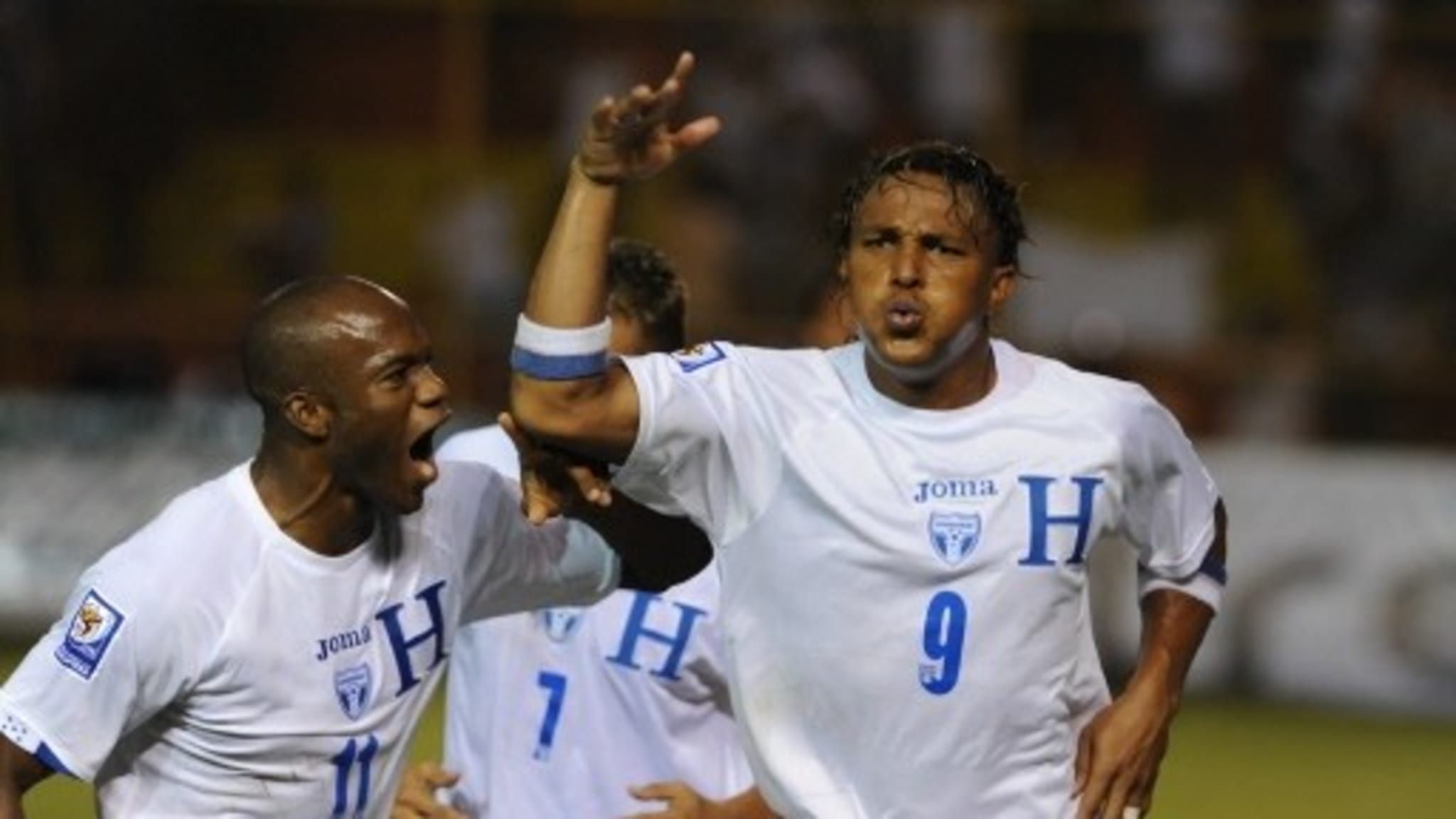MIAMI, Florida – There are several players from Concacaf that have enjoyed storied careers in European football, and ranking toward the top of the list is legendary Honduras FW David Suazo.
After a single season playing in his native Honduras with CD Olimpia, “La Pantera” was plucked away in 1999 by Uruguayan manager Oscar Tabarez Washington to play for Italian club Cagliari, where he would go on to play eight seasons.
Yet upon reflecting on those early days in Europe, Suazo said it was far from easy.
“When I arrived, things were very hard. For me it was a new world, I didn’t really know the footballing identity of where I was arriving. It was all new. It was tough because it was a new idea of play, culture and language,” said Suazo in an exclusive interview with Concacaf.com.
“The only thing that gave me confidence to face everything in my first year was that I was lucky enough to have Oscar Tabarez as my manager. He introduced me to the European world, he talked to me about it, he told me not to worry about it, that it was always tough at first. Those were words that helped me a lot and him being Uruguayan he could help me in that sense. If it had been an Italian manager, I’m not sure what would have happened in my career in Italy, but with the Profe Tabarez, he gave me the tranquility to do my job,” added Suazo.
The achievements of Suazo while at Cagliari are many. He scored 94 goals in 255 matches, including a record-setting 2005-06 when he set the single-season scoring record for the club with 22 goals and shared Serie A Foreign Footballer of the Year honors with Brazilian star Kaka of AC Milan.
There is no question that Cagliari will forever be a special place for Suazo.
“Cagliari is a part of my life in which I formed into a footballer and a man. I arrived 19 years old and left at 27, so from a boy to man. Cagliari represents me internationally as a footballer. They gave me the time to grow from a football perspective, to make mistakes in football which is important for a player. I had great managers who believed in my capability, so Cagliari is a special place. When I stopped playing, I stayed in the city to manage and my family was born and raised here. My wife is Italian, so Cagliari is my second home,” said Suazo.
In the summer of 2007, European football giants Internazionale came calling and Suazo soon found himself in Milan playing with the top players in the game. He would go on to help Inter win the Serie A title in 2007-08 and then in 2010 became the first Honduran to win the UEFA Champions League.
“When you go from a small club to a big, historic club like Inter, you find yourself in a totally different situation. You’re playing with top level players; you’re playing for top managers. I think it was a great decision because we were champions that year and then later in 2010 I got to work with [Jose] Mourinho, win the Champions League and play with players like Samuel Eto’o, Diego Milito, Zlatan Ibrahimovic, Luis Figo, Adriano, Marco Materazzi, Samuel, Ivan Cordoba, Esteban Cambiasso…. When you find yourself with these players in the dressing room, playing in the greatest stadium against the greatest players in the best competitions in the world, it makes you proud, and for me as a Honduran to form part of the history of a great club like Inter is a moment of pride. They are dreams that have come true. It’s a club that left a profound impact on me and is a successful part of my career for all the titles we won.
“[Roberto] Mancini to Mourinho to [Rafael] Benitez, they are all managers that I had at Inter and are all winning managers. Their attitudes were contagious to me and same with players. No matter where Ibrahimovic went, he won. Same with Eto’o, Figo, too, so those are players that automatically transmit that positivity to you and it stays with you, and I would then take that back to my teammates on the Honduran national team,” said Suazo.
After a breakout performance at the 1999 FIFA World Youth Championship with the Honduras Under-20 team, Suazo would enjoy another standout display at the international level representing Honduras at the 2000 Olympics in Sydney.
“I think as a team, we gave a good performance because no one expected us to draw with the reigning champions Nigeria, later beating Australia the host nation and then losing against a great Italy team. I scored four goals, which gave me more visibility at the European level. I went in with two years of experience playing in Europe, so arriving with that mentality and hunger into the competition was very important,” said Suazo.
All told, Suazo scored 17 goals in 57 matches with the Honduran Senior National Team, including helping the Catrachos reach their first FIFA World Cup in 28 years when they punched their ticket to South Africa in 2010.
“After coming close in previous World Cups, we finally did it in 2010. We had a group with 15 players who were playing outside of Honduras so that helped us a lot, gave us a winning mentality. After 28 years, finally qualifying for the World Cup was important for Honduras and for me personally it feels great that I was able to represent my country in this biggest tournament in the world,” said Suazo.
Now a new generation of Honduran players is looking to follow in Suazo’s trailblazing steps, including Houston Dynamo FW Alberth Elis, whose nickname “La Panterita” is a tribute to the original “La Pantera” himself. With Elis, Romell Quioto and Antony Lozano in the mix, Suazo believes that Honduras have a formidable attacking trio for years to come.
“Elis has a lot of similarities to how I played, he is very fast like I was. He plays a lot like how I played, I hope he can score and achieve results there in MLS because he has the quality to do it. He’s a player who I see improves every day and we hope to see him in a bigger league. Along with Quioto and Choco Lozano, they make a great forward line for Honduras. If they are in good form, they make Honduras a tough rival,” concluded Suazo.




















